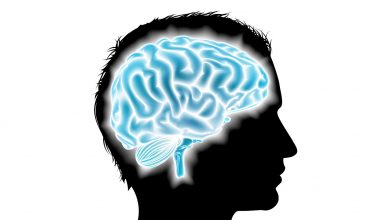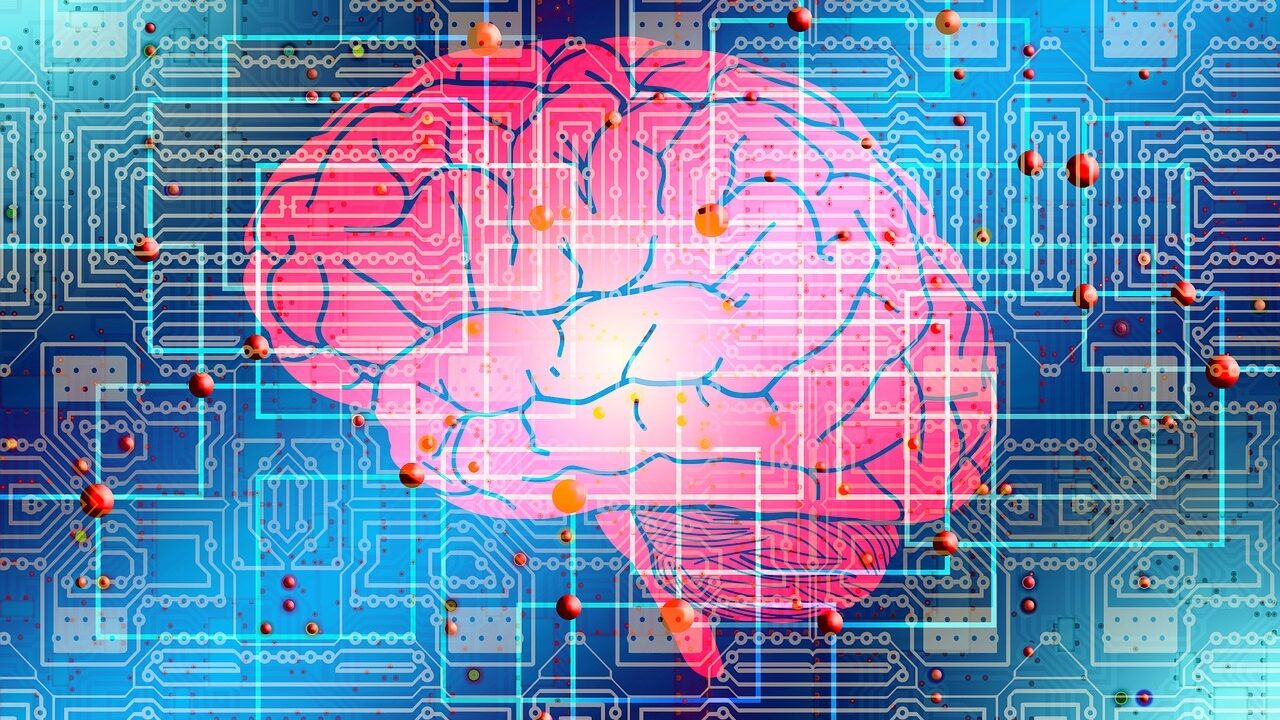
Interested in AI to improve your manufacturers’ performance and resilience? KM processes are what you need!
Recently, the success and survival of manufacturers have been closely linked to their ability to embrace advanced digital technologies – such as artificial intelligence (AI) – implement knowledge management (KM) processes, and put in place supply chain resilience strategies. But the practical relationship between these three elements is still unclear.
Thus, in our recent paper1, together with other colleagues, we develop a conceptual model (Figure 1) and validate it using an empirical survey to shed light on the relationships between AI, KM processes, and supply chain resilience, as well as their impacts on manufacturing firm performance.
The study is based on the following main hypotheses:
- AI has a positive effect on KM processes, manufacturing firm performance, and supply chain resilience.
- KM processes have a positive effect on manufacturing firm performance and supply chain resilience.
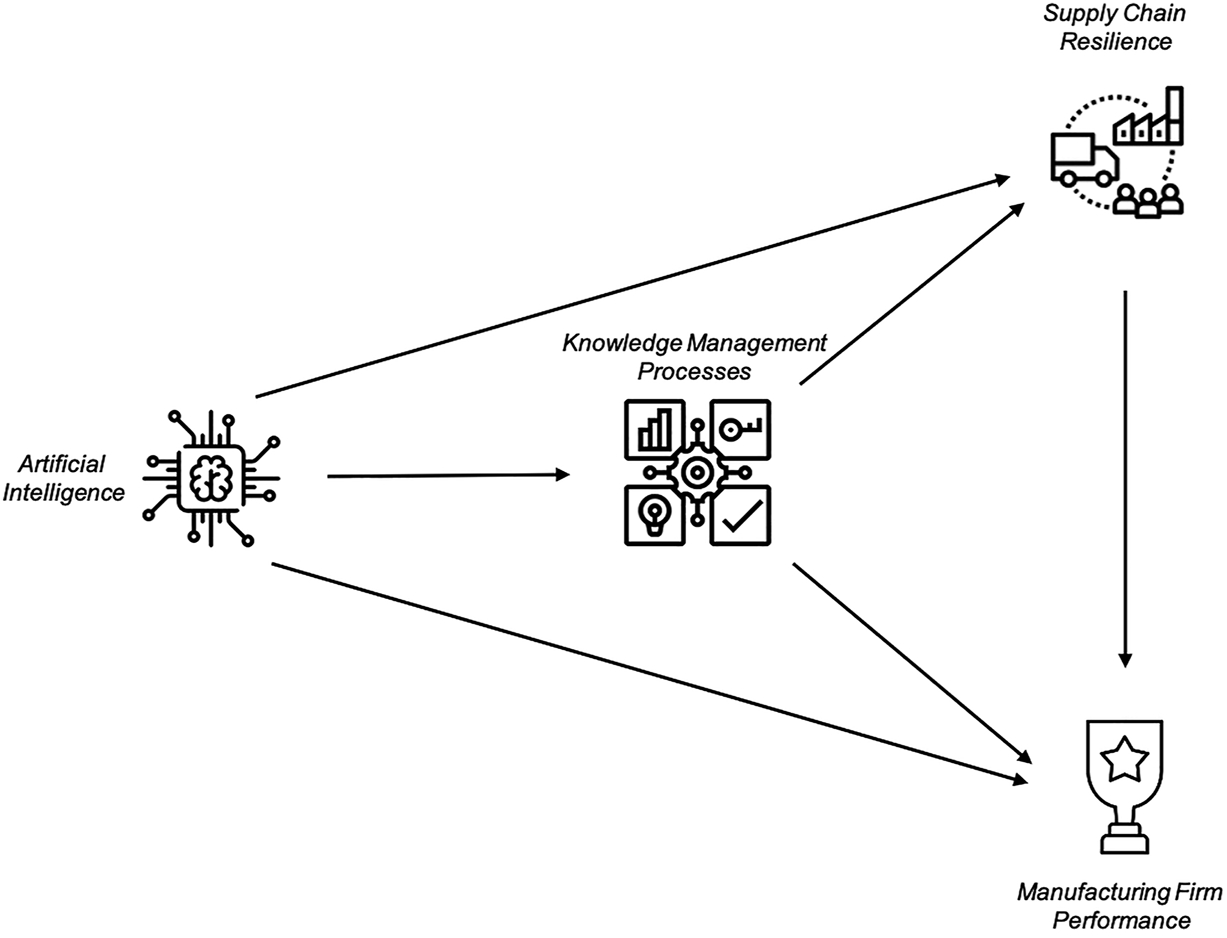
The investigation was conducted through an empirical survey administered to 120 senior executives of Italian manufacturing firms. The answers to the survey have been quantitatively analyzed via the partial least squares2 structural equation modeling approach using the Advanced Analysis for Composites 2.0 variance-based software program.
The results show the positive effects of the adoption of AI on KM processes, as well as the positive influence of these KM processes on manufacturers’ performance and their supply chain resilience. Surprisingly, the answers provided by the 120 senior executives demonstrate that there is not a direct positive effect of AI either on manufacturing firm performance or supply chain resilience (Figure 2).
In other words, the mere adoption of AI tools without appropriate KM processes is ineffective. Thus, using AI to transform data and information into valuable knowledge is possible and useful, but only KM processes can turn this knowledge into appropriate decisions, positively impacting both resilience and performance. Therefore, KM processes amplify the potential of AI.
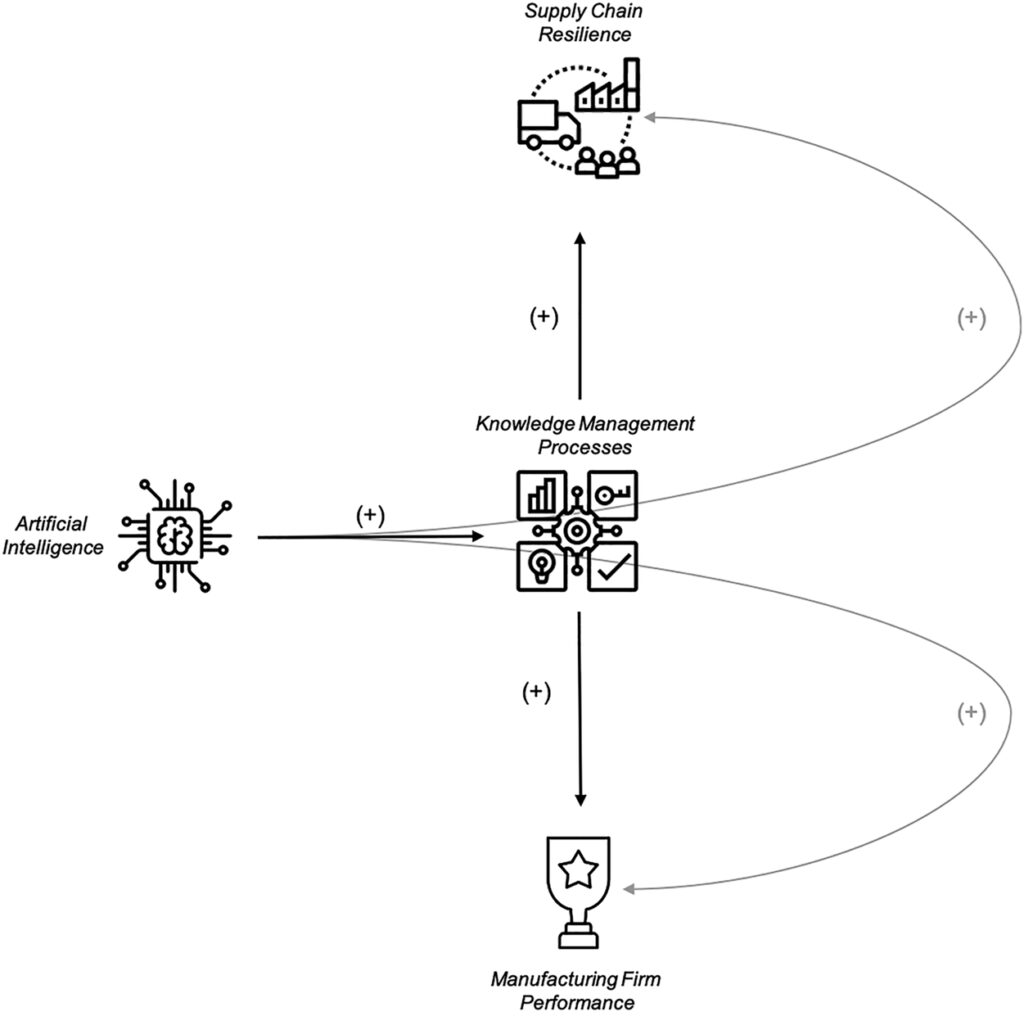
What does this mean in practice for manufacturers? To transform these results into practical learning means that managers must develop effective KM processes within the firm, encouraging employees to commit to acquiring, sharing, applying, and using knowledge. In other words, manufacturing firms can use AI tools to cultivate their KM processes that will, in turn, lead to better performance and supply chain resilience enhancement, and this can happen only if KM processes pave the way to AI.
To conclude, the important take away of the study is that AI positively affects manufacturing firm performance and supply chain resilience only when KM processes intervene, which confirms that KM processes play a crucial role and are unavoidable if manufacturing firms are interested in properly applying AI tools.
Biographies:
 |
Luna Leoni is an Assistant Professor in Management at the University of Rome Tor Vergata. At the same University, she is Professor of “Creative Enterprise” and “Knowledge Management Foundations” as well as Program Manager of the “Master in Economics and Management of Cultural and Tourist Activities”. Her main research interests are creativity, knowledge management, servitization, tourism. Moreover, she is Council Member of the European Association for Research on Services (RESER) and Editor in Chief of the International Journal of Information and Operations Management Education (IJIOME). Luna’s research findings have appeared in top-tier business, management, and tourism journals. |
 |
Ginetta Gueli is a seasoned Information and Knowledge Manager with concrete field experiences gained in national and international organizations such as IOM |UN, Boston Consulting Group, Valore D | Diversity & Inclusion, Chetcuti Cauchi Law Firm, MyData-Trust, Hudson Holding/Nike, etc. She is also the KMLobby Executive Producer of Pioneer Knowledge Services which provides KM talk shows and podcasts. Ginetta is part of KM4Dev Core Group and a member of the SIKM Leaders and SIKM Leaders Boston. Last but not less important, she is cooperating with the University of Rome Tor Vergata and the University of Brescia regarding the relationship between KM & AI. |
Article source: The mediating role of knowledge management processes in the effective use of artificial intelligence in manufacturing firms by Luna Leoni, Marco Ardolino, Jamal El Baz, Ginetta Gueli, and Andrea Bacchetti. CC BY 4.0.
Header image source: Gerd Altman on Pixabay, Public Domain.
References:
- Leoni, L., Ardolino, M., El Baz, J., Gueli, G., & Bacchetti, A. (2022). The mediating role of knowledge management processes in the effective use of artificial intelligence in manufacturing firms. International Journal of Operations & Production Management, 42(13), 411-437. ↩
- Benitez, J., Henseler, J., Castillo, A., & Schuberth, F. (2020). How to perform and report an impactful analysis using partial least squares: Guidelines for confirmatory and explanatory IS research. Information & Management, 57(2), 103168. ↩



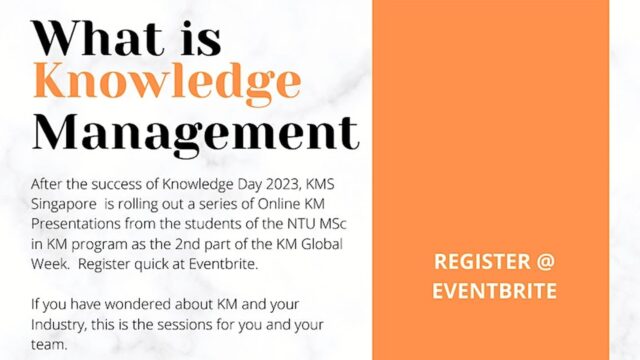
![Crowd Human Silhouettes Personal Group of People [Pixabay image 2045499]](https://realkm.com/wp-content/uploads/2018/05/crowd-2045499_640.jpg)
